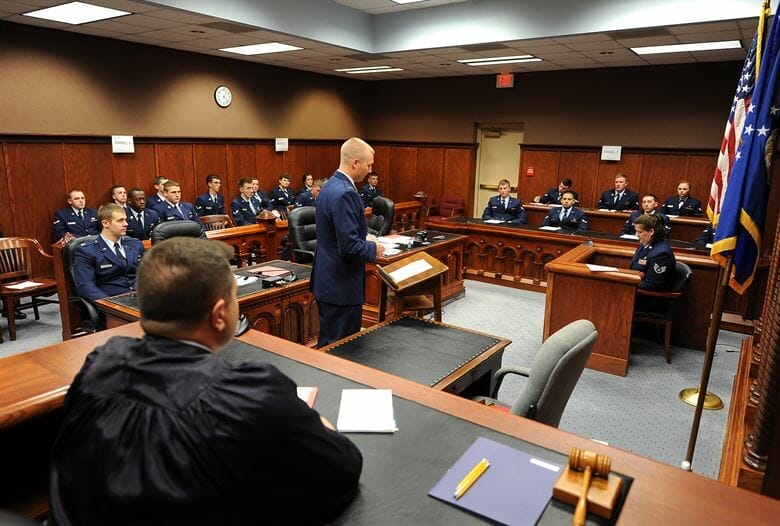It’s a question we get asked a lot – can I get a fair trial in the military? We understand why you’re asking. For years, Congress has been breathing down the necks of military commanders to bring charges against their members. In sexual assault cases, the pressure is unbelievable. You may feel like your whole command is against you. And you may wonder if anything will change when you face a jury that says it will be “impartial” and “unbiased,” but all of them come from your same base or command.
Unfortunately, there is no easy answer to the question. Often times, your ability to get a fair trial in the military depends on the quality of your defense counsel and their willingness to stand up to military powers. Because there are big problems with the military justice system, and you need a defense team that will make sure you get a fair trial.
Pressure for Commanders to Bring Charges
Whether they admit it or not, military commanders are under tremendous pressure to bring criminal charges against their members. This is especially true in sexual assault cases. It seems like every few months, some internet headline or news story shows the pressure that commanders are under. Don’t bring charges? Congress will hold public hearings. Believe that someone was wrongfully convicted? A United States Senator will block your promotion. Take administrative action instead of dragging your troop through a criminal trial? The Secretary of Defense will blast you for being too easy on your people.
These are all examples of “unlawful influence,” a part of the military justice system that has been called its “mortal enemy.” And the only way to expose it is to have a defense counsel with the experience and tenacity to go after military commanders. You need someone that is willing to call out the process and ensure that your due process rights are protected.
In sexual assault cases, this pressure often results in commanders sending even the weakest cases to trial. Week after week, military trials involve “he said she said” cases with little to no hard evidence of a crime. Sometimes, military members beat those charges. Far too often, even in the weakest cases, military members are convicted on weak evidence and forced to register as sex offenders. You need a defense team that won’t allow the “pressure” to “believe the victim” lead to your wrongful conviction.
Verdicts that Aren’t Unanimous
A recent change to the law makes it so that if three-fourths of the jury believes someone is guilty, they must convict that person. This is much different than the civilian system, where unanimous (or 100%) verdicts are required. In the military, 75% is enough.
This obviously has a huge impact in your case, because you could be convicted of a crime even though some of the jurors don’t believe you did it. Military courts have found a way to justify this over the years, so you can’t fight the system. Instead, you need an experienced defense team that knows how to fight within the system, to convince those jurors to vote “not guilty” when reasonable doubt exists.
Increased Rights for “Victims,” Decreased Rights for You
Over the past few years, military leaders and members of Congress have taken extraordinary steps to increase the rights of so-called “victims.” For example, Congress enacted a comprehensive victims’ rights statute that, among other things, permits a “victim” to decline participation in any legal proceedings before trial. “Victims” are routinely granted “expedited transfers” to a new military base of their choosing just for reporting a crime to investigators. And victims are permitted to refuse an interview with the defense counsel, meaning the first time they may be questioned by a defense counsel is during the actual trial.
Meanwhile, those accused of crimes have seen a tremendous decrease in their rights. For example, every military member accused of a crime used to be entitled to a pretrial “investigation” that looked into whether an allegation was true or false. Congress changed that process, now known as an Article 32 “preliminary hearing,” which provides far less information to the defense and often leaves commanders with many unanswered questions.
With Congress trying to give “victims” every advantage, you need to bring your own power to the fight.







